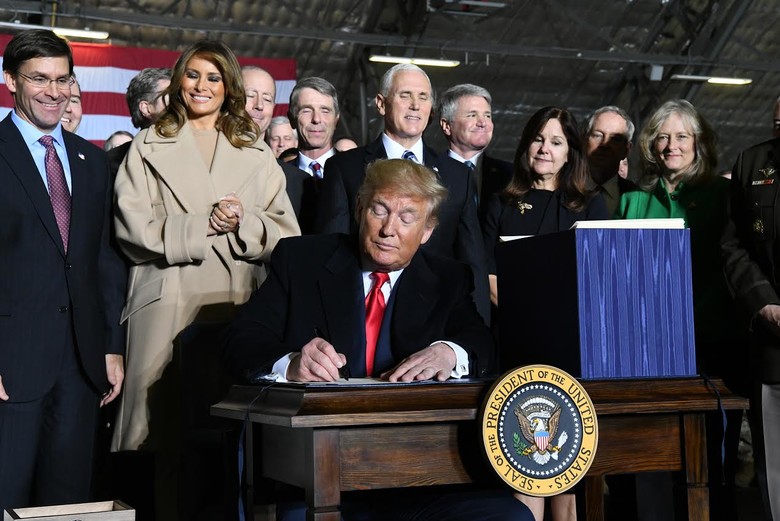In the midst of national protests against systemic racism, President Trump quietly signed an executive order that will waive key environmental reviews from highway construction projects — a move that, if history is any indication, will have an outsized impact on black and brown communities.
Late Thursday evening, the Trump slashed requirements in the National Environmental Policy Act, which mandates comprehensive environmental review before engineers break ground on road and pipeline projects that receive federal dollars. The administration used COVID-19 to justify the move, citing an oft-repeated (and, in the eyes of many experts, extremely dubious) claim that federal infrastructure spending will help ease our national recession in the wake of the pandemic.
"The need for continued progress in this streamlining effort is all the more acute now, due to the ongoing economic crisis," Trump said in the order.
The Thursday night massacre also slashed key protections in the Endangered Species Act and the Clean Water Act, but the environmental policy act cuts drew particular backlash from advocates in light of ongoing protests following the killing of George Floyd by Minneapolis police. In recent weeks, black, indigenous, and people of color leaders in transportation justice and climate advocacy have pushed their white counterparts to examine how police brutality and environmental racism are two symptoms of the same disease — white supremacy — that has infected every corner of our society.
The racist ideologies that underlie systemic brutality are the same ones that fuel inequalities in income and healthcare, and air and water pollution in our most vulnerable communities. They also hold back the environmental movement — the fight to save species, wild places. pic.twitter.com/c33a4vkABb
— Cecilia Vicuna (@vicunacec) June 7, 2020
Countless studies have demonstrated the environmental racism inherent in our highway planning process, especially when it's exempted from rigorous environmental review. Black neighborhoods, and especially low-income black neighborhoods, are more likely to be located near roadways with high levels of tailpipe emissions — and unsurprisingly, the residents of such neighborhoods are disproportionately diagnosed with a raft of diseases tied to particle pollution. These health disparities also help explain why COVID-19 mortality rates among black Americans are 2.4 times higher than among white Americans.
Such inequities could be exaggerated even further by Trump's executive order, if states and cities use it as a shield to fast-track highway projects that would pollute communities of color. And some advocates fear that, in the midst of a wave of horrific police brutality against protestors fighting against structural racism in policing, Trump's latest environmental racism outrage could get lost in the shuffle — especially if white allies don't step up.
"The sheer magnitude of transforming our energy, transportation, buildings, and food systems within a decade, while striving to reach net zero greenhouse gas emissions shortly thereafter, is already overwhelming," said marine biologist and climate policy advisor Ayana Elizabeth Johnson in a recent op-ed for the Washington Post. "How can we expect black Americans to focus on climate when we are so at risk on our streets, in our communities, and even within our own homes? How can people of color effectively lead their communities on climate solutions when faced with pervasive and life-shortening racism?"






